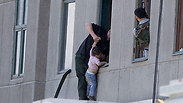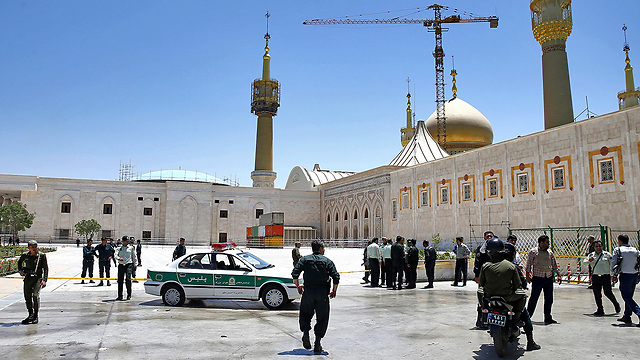


Failed US policies at the heart of Middle East problem
Analysis: The old understanding between Tehran and the Sunni radicals—that Iran is immune to attacks—was shattered Wednesday. The expanding hurricane is slowly encompassing the entire region, and Israel—for the sake of caution—should not assume it is immune.
After all, these commentators and critics rush to radio and TV studios every time a terror attack takes place in the West and explain where the Germans/Americans/Brits/French went wrong. They, unlike the security establishments in those countries, know how to deal with terrorism, and if it's up to them to explain how to do it—there’s absolutely no problem.
But that didn’t happen. There was no security expert available to explain that the Iranians are granting too many civil rights, that their legal system is too weak, that they are not strict enough. In general, it was hard to find anyone offering the Iranians advice. After all, an attack on the parliament building indicates a problem in dealing with terror infrastructure. The question is why were we spared the regular interview explaining how naïve Tehran is.

The answer is, of course, that Iran is not naïve and that civil rights are not its guiding principles. And in spite of its oppressing regime, it was hit by an Islamic State terror offensive, just like London last week. The answer is that it’s very hard to deal with terrorism and its infrastructure. And the answer is that there are no simple answers, neither on the radio nor in general.
The desire for simple and firm statements is part of human nature, but in the era of globalization there are hardly any binary situations. If we’re looking for something to focus on in a bid to understand, we should start with the global hegemon.
Indeed, the United States and its last three presidents are at the root of the current unrest. The first one, George W. Bush, meddled in the Middle East blatantly, set aggressive democratization processes in motion (including funding the training of Egyptian revolutionists against former President Hosni Mubarak), invaded Iraq, executed Saddam Hussein and gave the impression that America had started managing an empire here. The second one, Barack Obama, received a bankrupt country and decided—blatantly too—to pull out of the Middle East and bury his hand in the sand when it came to the reality in the region. To make the pullout possible, Obama struck a deal with Iran at all costs (including abandoning Syria) and managed to do two dangerous things: Withdraw, and bolster Tehran.
The regional players didn’t understand what was going on. These are regimes that are incapable of understanding such a sharp switch in ideologies every eight years. As a result, each of the Middle Eastern elements began doing as they pleased, without asking Washington. The Saudis sank into the Yemeni swamp. The Qataris moved closer to Iran, while funding radical Islamists. Everyone stirred things up in Bahrain. The Iranians meddled everywhere, mainly in Syria. An entire party of schemes, violence and death, and such a party can have only one guest of honor: Russian President Vladimir Putin.
And then came Donald Trump, who didn’t realize what he was getting himself into. His backing of the Saudi stance on Qatar is slightly peculiar considering the fact the biggest American base in the region is located in that country, and that the Saudis aren’t any more innocent than the Qataris, when measuring support for radicalism. To add to the instability, it now turns out that the old understanding between Tehran and the Sunni radicals (al-Qaeda at the time)—that Iran itself is immune to attacks—no longer exists.
What we do see, in a nutshell, is American amateurism by three administrations, from Bush to Trump. Some people here believe that what is happening in the region serves Israel, and in the short run we do shine like a beacon of normal stability in a crazy Middle East. In the long run, however, it’s impossible to isolate the nations in the region from the expanding hurricane, whose heart is in Syria. It is slowly encompassing the entire region, from Syria to Iraq, then onto the Persian Gulf, and back to the parliament in Tehran. For the sake of caution, Israel should not assume that it is immune.
Nadav Eyal is Channel 10's chief international correspondent.















